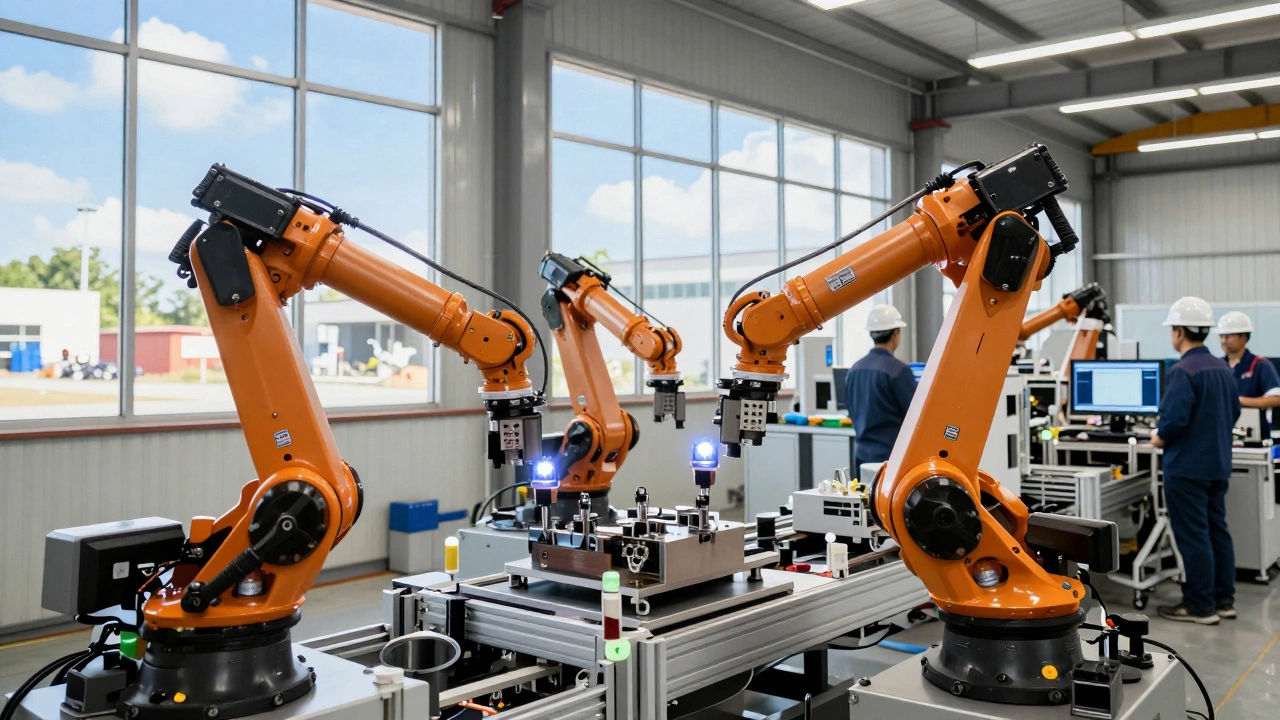Factory Jobs: Your Quick Guide to Landing a Manufacturing Role
Looking for steady work that doesn’t require a fancy degree? Factories are hiring, and the entry barriers are lower than you think. From assembly lines to quality control, there’s a spot for almost anyone who’s ready to roll up their sleeves. This guide breaks down the easiest ways to find a factory job, what skills boost your chances, and how to ace the interview.
How to Find Factory Jobs Quickly
First stop: local job boards and the “Jobs” tab on sites like Indeed, Naukri, or LinkedIn. Use filters like “manufacturing” or “factory” and set the radius to your city. Many factories also post openings on their own websites—hit the “Careers” page of big players like Tata Steel, Hindustan Unilever, or local SMEs. Don’t overlook community boards at grocery stores or community centers; smaller plants still rely on word‑of‑mouth.
Second, walk in. In many industrial zones, a quick visit to the reception and handing over a short resume can get you a foot in the door. Recruiters often have daily or weekly hiring drives, especially during peak production seasons. Bring a clean, one‑page resume that lists any hands‑on experience, certifications (like forklift or welding), and your availability.
Finally, sign up with temporary staffing agencies that specialize in industrial labor. Agencies such as Adecco, Randstad, or local labs can place you on short‑term contracts that often turn into permanent roles. The key is to stay active—apply daily, follow up with a call, and keep your profile updated.
What Employers Look for in Factory Candidates
Reliability tops the list. Show up on time, follow safety rules, and complete tasks without supervision. If you can give a quick example—like never missing a shift for three months—that’s gold. Physical stamina matters too; many roles involve standing, lifting, or moving parts all day. Mention any past jobs that required similar effort.
Skill sets vary by department. For assembly lines, basic math and the ability to read simple schematics help. If you’re aiming for machine operation, a certificate in CNC machining or a safety training badge will set you apart. Quality‑control positions value an eye for detail—talk about times you caught a mistake before it slipped through.
Soft skills are a surprise win. Clear communication with supervisors, teamwork on the floor, and a willingness to learn new processes often tip hiring decisions. Throw in a line about being comfortable with shift work or overtime, and you’ll match most factories’ needs.
Now that you know where to look and what to showcase, start crafting that short resume, hit the local industrial park, and apply online. The manufacturing sector is buzzing, and a solid entry point can lead to higher‑pay roles like supervisor, maintenance technician, or even plant manager down the line. Keep learning—online courses on Lean, Six Sigma, or basic PLC programming can boost your profile without breaking the bank.
Bottom line: factory jobs are plentiful, and the hiring process is straightforward if you target the right channels and highlight reliability, basic skills, and a safety‑first attitude. Get out there, apply daily, and watch the offers roll in.
Is Manufacturing Dying in the US? The Real Story Behind the Numbers
Despite claims that US manufacturing is dying, output is at record highs thanks to automation, government investment, and skilled workforce development. Factories aren't disappearing - they're evolving.
Why is Manufacturing Dying? The Real Reasons Behind the Factory Slowdown
Manufacturing, once the backbone of local economies, is facing a steep decline. This article explores the real reasons factories are closing and jobs are vanishing, despite the parade of government schemes meant to revive them. We'll look at how automation, global competition, and changing policies shape this trend. Get straightforward tips on the role businesses and policymakers can play. If you've ever felt confused by headlines about the 'death of manufacturing,' this clears the fog.

